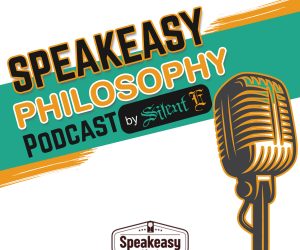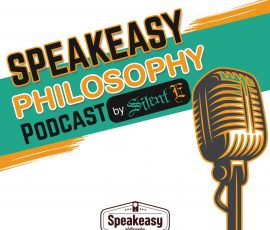Welcome to speak easy philosophy
As a recovering addict battling thirty-plus years with addiction. I understand the daily struggles (the struggle within the struggles), the back and forth (the push and pull), the love and the hate relationship within addiction. I also understand the burdens of loneliness that occupy every eternal thought layered in the darkest parts of addiction. As well the paralyzing grip of fear (for many of us), it might be that recurring nightmare—a forcible stroke by pounding heart rate—or wrapped up in the abyss surrendering sweet release while losing control and finally awaken in rehab. But, unfortunately, there’s a far worse fear than dying in addiction (the fear of living without an addiction).
What if I were to tell you that you have power over your addiction? What if I told you not only the power over your addiction but the power to move beyond your addiction? What if I give you the building blocks to this newfound freedom? What if I gave you a comprehensive step-by-step layout design on how to move beyond your addiction? What if I give you the complete illustration of how I moved beyond my addiction? What if I give you all of this for free? Please, say not to yourself, why? But rather be a sponge (someone who is tirelessly driven to seek and absorb new information) If these revolutionary ideas are something you can get behind? I want to introduce you to my philosophy.
While yet in its fetal stage, this cutting-edge philosophy has enormous potential to be unmatched (without rivals). It can be said with confidence that this multi-layered philosophy will revolutionize the way people think concerning alcohol addiction. The brick-and-mortar of this philosophy is solidifying the notion that addicts can move beyond their addiction without overcoming said addiction. The archaic principles and practices of teaching addicts to overcome their addiction are outdated, to say the least. Nearly all treatment programs subscribe to this indoctrination (the fundamental principles) that addicts must overcome their addiction. However, as a chronic alcoholic, I never believed in that precept.
This is a working theory heavily weighted on the evidence of my struggles with alcoholism. As previously stated, I have had the misfortune of being an alcoholic for years. For years, I have sought a resolution for this problem; Thirty-days, sixty days, ninety days, one year, in/out/patient treatment programs for the better part of my life. I do not care how great the program was…I always walked away wanting (feeling empty), lacking the inability to stay sober. For the record, most of these programs, if not all, were of excellent cultures, did their best to help me, and on several occasions, I graduated. But deep down inside, I was a chronic alcoholic irreparably damaged without any possibility of being fixed (destined to die on the road to recovery).
Disclaimer
All information on this website is provided in good faith for guidance and educational purposes only.
This website is a peer support, sole purpose is to encourage people in their life-long process towards healthy and successful recovery. I recognize that I am my brother’s keeper. I also recognize that there is a higher source than ourselves guiding the healing process. In conjunction with recovering from addiction, I will encourage every person to strengthen his relationships with God, family, friends, and community. Each person is also expected to use their recovery to mentor others in need.
I believe in one God only; God the Father, God the Son and God the Holy Spirit, are the three manifestations of the one God and His divine name is Jesus. Almighty, Maker of heaven and earth:
I believe that Jesus Christ, the man of Nazareth, is the only begotten Son, of our Lord: Who was conceived by the Holy Ghost, born of the Virgin Mary: Suffered under Pontius Pilate; was crucified, dead and buried: On the third day, He rose again from the dead. He ascended into heaven, and sits at the right hand of God the Father Almighty:
Peer support is a way to link individuals living with a common addiction. These individuals have the opportunities to share knowledge and experiences to better support each other. Peer support is frequent, ongoing, accessible, and flexible. Peer support can take many forms which includes encouraging one another inscripture, written word,testimony’s, and email. It complements and enhances other services being provided to the individual by creating the emotional, social, and practical assistance necessary for managing the recovery process.
Peer support may come in many different formats. A peer support group is a place where people voluntarily gather together to receive support and provide support by sharing knowledge, experiences and coping strategies, and offering understanding. There are many different kinds, including in-person self-help groups, online support groups and others. For those in recovery, some of the most popular peer support groups held outside the formal treatment settings for addiction include sober living houses and 12-step programs such as Alcoholics Anonymous, Narcotics Anonymous, and Cocaine Anonymous. In fact, 12-step groups are currently the most referred adjunct support for those who receive professional treatment for substance abuse disorder.
5 Pounds To Trigger
The jinx of dependency billows this wayward soul, squeezing every...
Winebibber
Overpowered by the tide of emotions as the chauffeur-driven limousine...
Mathematician
Mathematically speaking most addicts are beyond redemption [including myself]. If...
A Bastard Child
This conversation should resonate with all my yoke-brothers that are...
1. Health
Overcoming or managing one’s disease(s) or symptoms and making informed, healthy choices that support physical and emotional well-being.
2. Home
Having a stable home that provides a sense of security and suppot is a basic requiement for your well-being.
3. Purpose
Conducting meaningful daily activities and having the independence, income and resources to participate in society.
4. Community
Having relationships and social networks that provide support, friendship, love and hope.
- This Peer Support Group is a Christ centered ministry.
- Confidentiality is crucially important.
- Keep your sharing focused on issues dealing with your recovery and don’t drift on to other unrelated topics.






